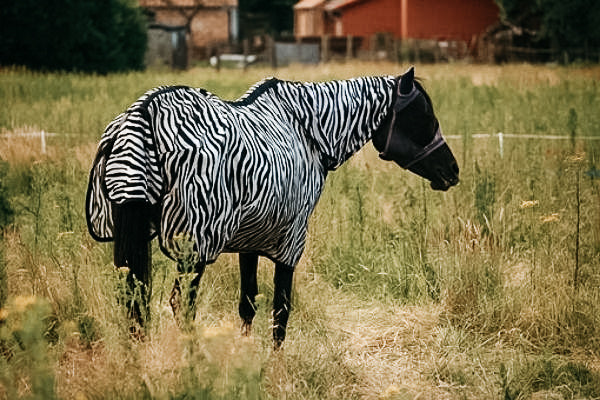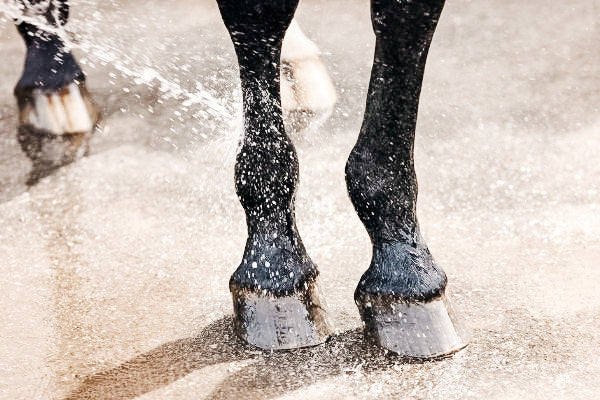
Sweet itch horse
When it becomes friendlier and sunnier outside again, we look forward to a carefree time in nature, but a horse disease tends to strike especially at the most beautiful time of the year: sweet itch in horses. This extremely unpleasant itching in horses is often observed in Icelandic horses; it is not without reason that the word "eczema-free" is often mentioned in advertisements for Icelandic horses for sale.
What is the reason why Nordic Icelanders in particular are prone to this horse disease? How do I recognize sweet itch in horses? And how can sweet itch be treated?
Eczema in horses is an allergic skin disease that is caused by various insects, especially flies and mosquitoes. That's why the skin changes also appear in the mosquito season, whereas they usually disappear completely in winter. The horse is allergic to the saliva of certain biting flies and mosquitoes, such as horseflies, mosquitoes and black flies.
Summer eczema in horses requires treatment in two ways. On the one hand, it is important that you avoid contact with the allergy triggers, and on the other hand, itching and inflammation of the skin should be contained.
Now it is of course not appropriate for the species to lock your horse in a dark stable in the summer, possibly in solitary confinement, so that no mosquito gets lost on your four-legged friend's fur. For an outdoor outing in the sun with your peers, there is the eczema blanket, which you can buy in a large selection from all common equestrian shops. The solid material of the eczema blanket prevents the blood-sucking insects from biting the horse.
Now it is of course not appropriate for the species to lock your horse in a dark stable in the summer, possibly in solitary confinement, so that no mosquito gets lost on your four-legged friend's fur. For an outdoor outing in the sun with your peers, there is the eczema blanket, which you can buy in a large selection from all common equestrian shops. The solid material of the eczema blanket prevents the blood-sucking insects from biting the horse.

If your horse suffers from sweet itch, you should allow your horse to graze between 9 a.m. and 4 p.m., because then the annoying mosquitoes are less active. After that, your horse needs either a stable or plastic curtains at the entrances and exits of the open stable to protect itself from the mosquitoes.
Windy pastures are beneficial for eczema as mosquitoes avoid the air movement. You should continue to avoid oversupplying your horse with energy and protein and ensure that your horse has all the nutrients it needs. Good stable and pasture hygiene is also helpful in keeping insects away.

Once a week you should treat your sweet itch horse to a wash. This eliminates the smell that attracts insects. However, washing too often destroys the protective function of the skin, so daily washing would be counterproductive.
Eczema in horses is an annoying horse disease, but it can be easily managed with the right treatment. This takes a little time and patience, but with the right care you will be able to minimize the horse's itching and enjoy a carefree summer with your pet.
Discover more posts

The 4 best tips to combat boredom in the stable
The yawning boredom in the stable: Horse keeping always presents us with new challenges. This should be as fair to horses as possible and at the same time offer optimal training opportunities. Re...
Continue reading
Cracked hooves at the beginning of summer. Causes, symptoms & tips
Cracked hooves – what can you do about it? A problem that causes a lot of headaches for many riders in Germany is dry or brittle hooves. This problem often occurs at the beginning of summer, when...
Continue reading
